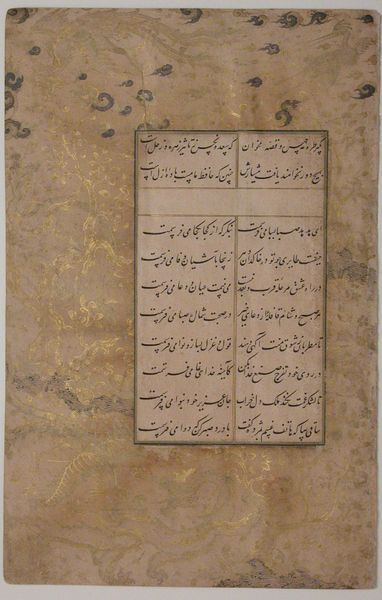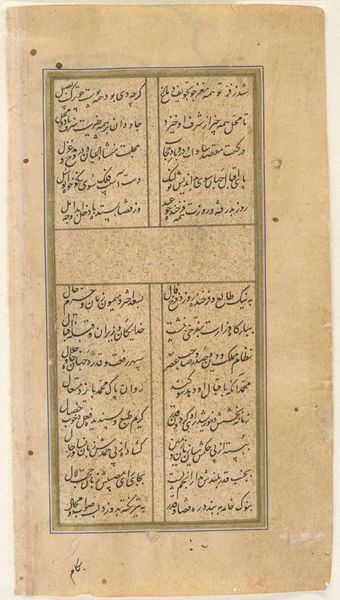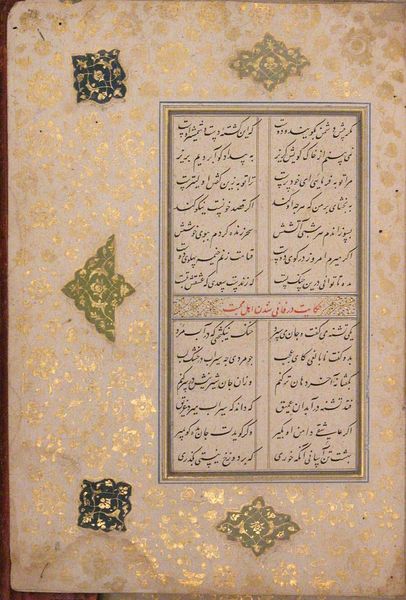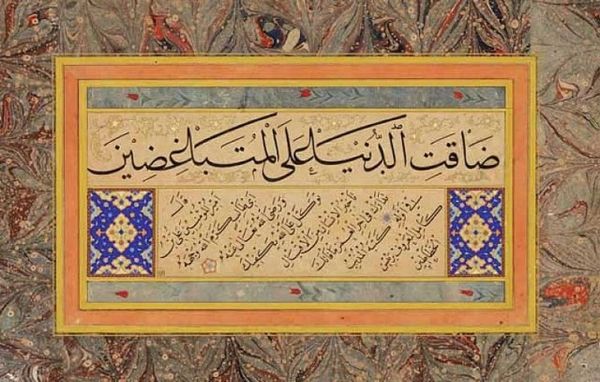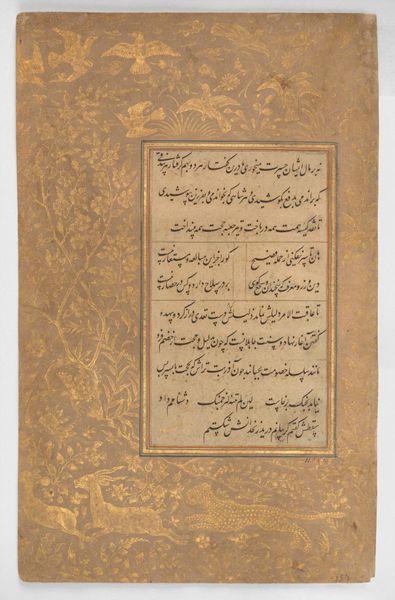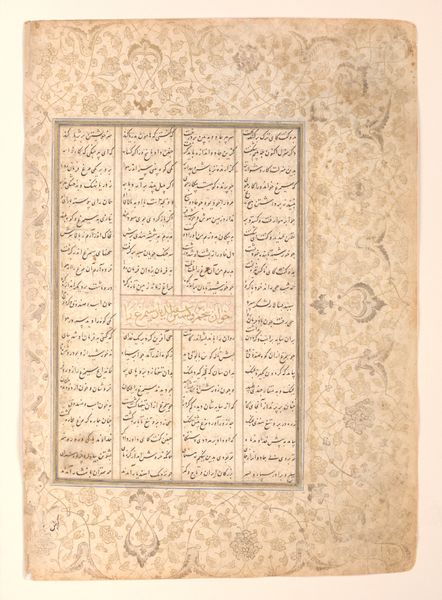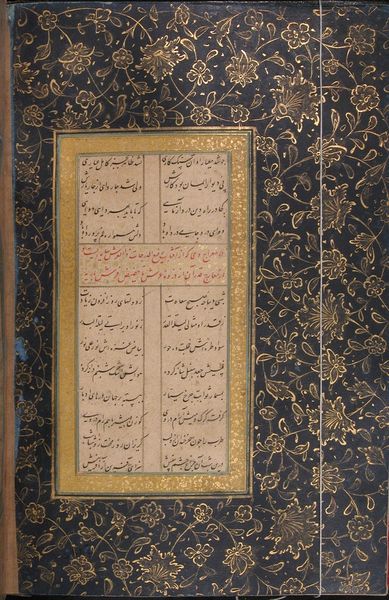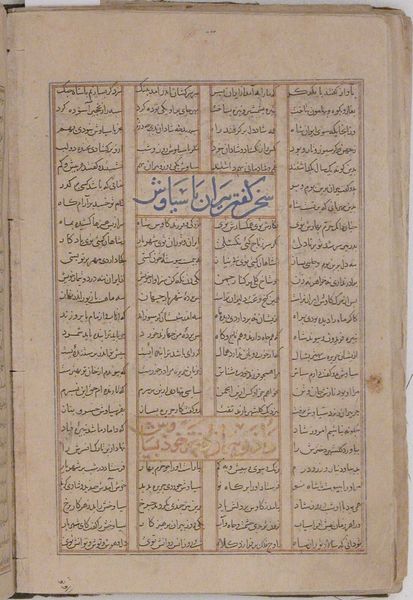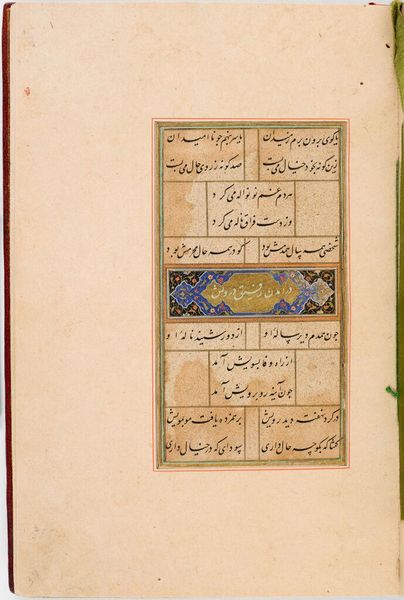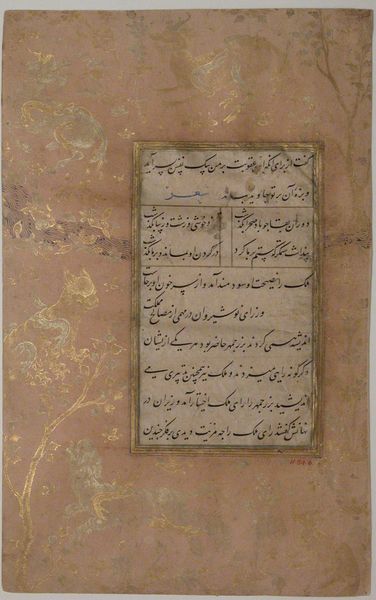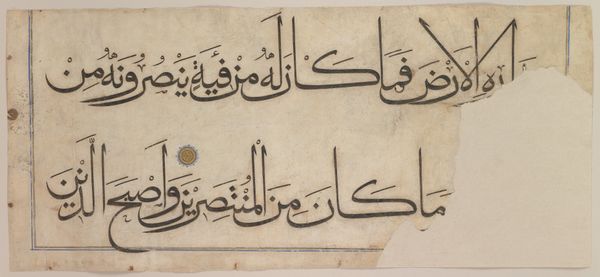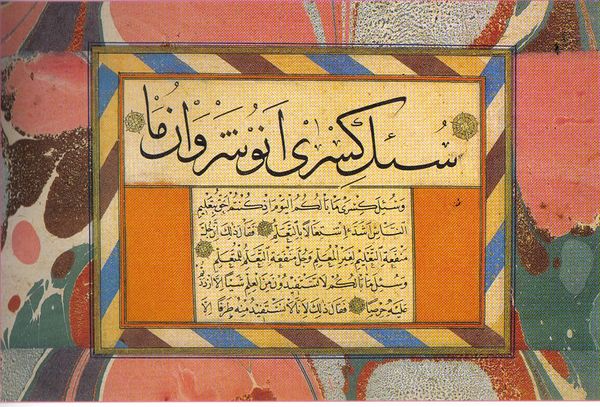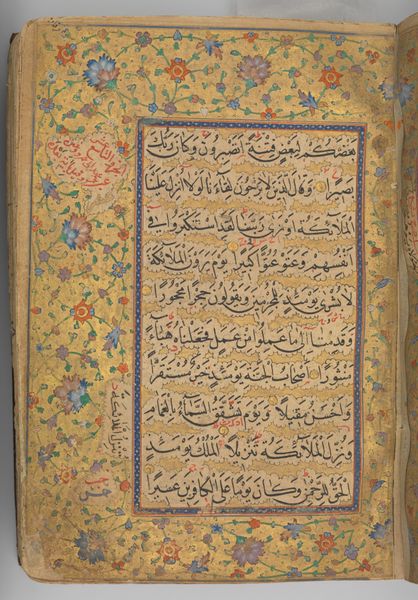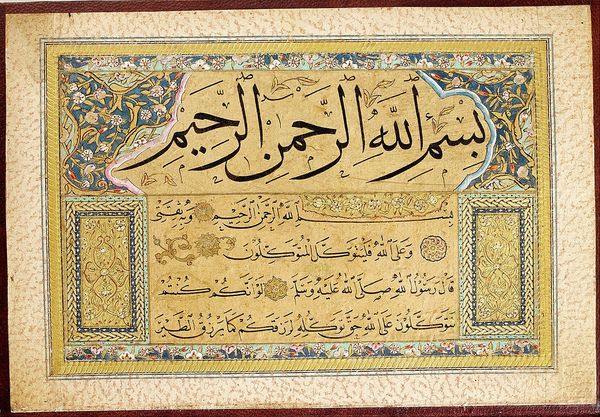
drawing, carving, paper, ink
#
drawing
#
carving
#
paper
#
ink
#
abstraction
#
islamic-art
#
miniature
#
watercolor
#
calligraphy
Copyright: Public domain
This calligraphy by Sheikh Hamdullah was made around the turn of the 16th century in the Ottoman Empire. It exemplifies the complex relationships between religious institutions and artistic practices in the Islamic world. Calligraphy held an elevated position. It wasn't merely a means of communication, but a revered art form closely associated with the divine word of the Quran. Hamdullah, renowned as the father of Ottoman calligraphy, served in the court of Sultan Bayezid II. His role highlights the institutional support that artists enjoyed. This patronage encouraged innovation within established aesthetic frameworks. The elegant curves and precise proportions of the script reflect the cultural emphasis on discipline and refinement. To fully understand the importance of this piece, we need to look into the history of Ottoman manuscript production, and the role of the court in promoting artistic excellence. Only through such research can we appreciate how this calligraphy embodies the social and cultural values of its time.
Comments
No comments
Be the first to comment and join the conversation on the ultimate creative platform.
